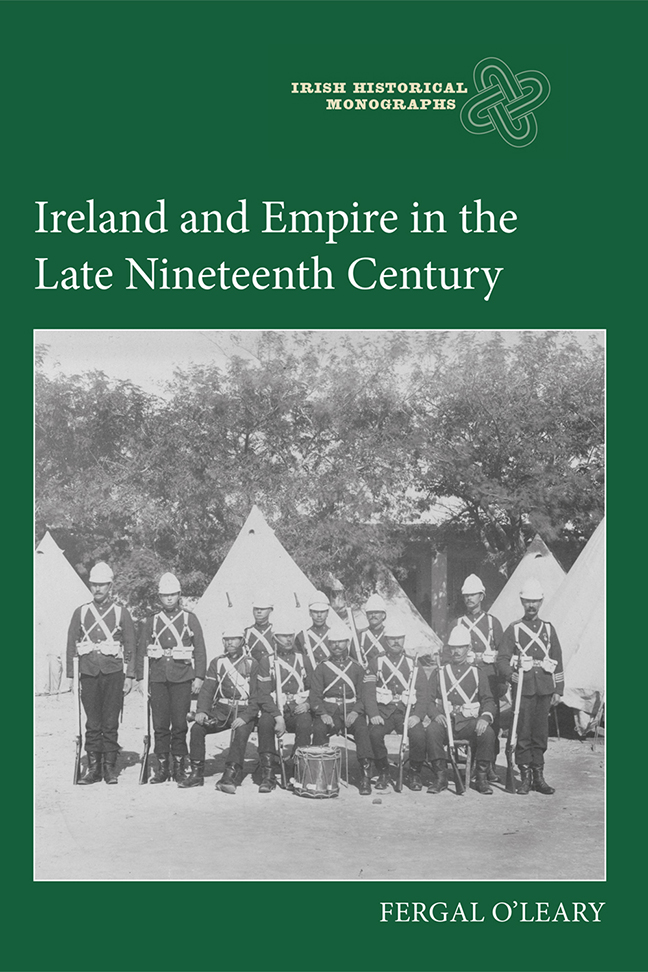6 - Learning About Empire: Debating Societies and Schooling
Published online by Cambridge University Press: 17 December 2023
Summary
Dugan, a school inspector, made a short but nonetheless perceptive assessment of the change that was taking place. In his 1889 report on the Lurgan district, he wrote: ‘In those days of travel – colonisation and revealings of hitherto unknown peoples and regions, one would expect the development of a keen and widespread interest in Geography [sic].’ Given his profession, C. Winston Dugan, formerly of Parsonstown in King's County, can perhaps be trusted as an accurate observer. Moreover, with a son in the British army, who later died while on service in India, and another who went on to become governor of South Australia and Victoria, Dugan was probably more aware than most Irish people of the growing control of European powers over indigenous societies. And he was right. During the age of high imperialism, the Irish became more interested in the wider world and learning colonial geography in schools helped to encourage and satisfy this interest. Whatever their motives, imperialists were opening up the extra-European world to more and more people in Britain and Ireland and in doing so, gave individuals something new to learn.
Opportunities to learn about empire were ever increasing in late-Victorian Ireland as a public knowledge of imperial affairs developed. Recreational facilities scattered around the country, such as libraries, town halls, or reading rooms, supported the activities of local debating or literary societies that sometimes held debates and lectures on imperial issues. Debating societies proved an important forum for the expression of opinion outside of the parliamentary chamber or political meeting. The topics debated, the arguments expressed, the voting results, and the reactions from the public gallery offer insights into contemporary attitudes towards empire. Naturally, the classroom was a more formal site of learning for students, who were educated on aspects of the British colonies. Accessibility to schools, however, was limited, as only a segment of society benefited from extended education. Nevertheless, Ireland's primary school system introduced generations of Irish children to empire. School inspector reports provide historians with valuable information on what pupils were taught about colonial life and why, and the overall level of performance. This chapter considers the contribution of debating societies, facilitated by the likes of a local hall or reading room, and national school education, to an awareness in Ireland of empire and imperialism.
- Type
- Chapter
- Information
- Ireland and Empire in the Late Nineteenth Century , pp. 168 - 190Publisher: Boydell & BrewerPrint publication year: 2023



